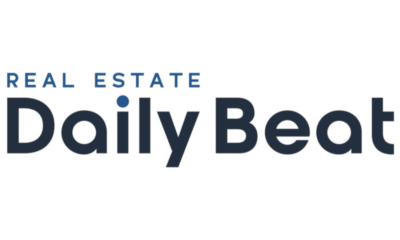PropTech
Inside the Boardroom: Nick Romito
By
Joseph Richter

VTS CEO & Co-Founder Nick Romito joined the Real Estate Daily Beat to discuss PropTech, SPACs, WeWork, the future of office, the company’s recent acquisition of Rise, and other topics.
Daily Beat: The pandemic has clearly been an accelerant to tech adoption, but budget cuts have hit the industry hard and have made large contracts more challenging. Commercial real estate tech software companies have experienced a massive increase in usage without commensurate revenue growth. How has business been for VTS in general and what have you seen in the crowded space?
Nick Romito: I’ve always thought that the amount of companies and capital poured into the space was maybe overweight to the size of the TAM {total addressable market}. I don’t know if there’s enough of an addressable market for 4,000 PropTech companies. I think there’s one for 40, so I think if you’re in an enterprise or scalable position like VTS, you kind of love that because you’re going to pick up great products and teams at a discount. So we view the current market conditions as highly opportunistic for us given our scale and our channel.
Daily Beat: So it sounds like you guys are hyper-focused on growth and not so worried about revenue.
Nick Romito: You know we’re growing. We hired 125 people during COVID, and have been cash flow breakeven on multiple quarters. So our growth is astronomical. I think we’re in a unique spot given what we do, but lots of folks to your point are struggling, and there are lots of companies that didn’t survive last year.
Daily Beat: There are a lot of startups that our Daily Beat team has interviewed in the past three years that are now out of business. Truss as an example. It’s just incredible to see how much money has been spent on the marketing side without yielding revenue growth. How do you view WeWork in the future? What’s the co-working space going to look like? Do you see it more on the management and franchise side, essentially as like a Marriott or Hilton?
Nick Romito: We’re super bullish on flexible space. Coworking for me is a small component of that. Flexible leasing is here to stay. I think every major owner agrees with it. You’re going to see people like Tishman Speyer who has Studio, and lots of others do their own thing. In the UK, where most of this started, that’s more the norm for owners to have their own program in place, versus an outsourced one.
WeWork obviously had a pretty turbulent 18 months, but the reality is they have the most scale and this is kind of a scale game. So if they can truly get the business to break even, I would be pretty long WeWork if that were the case. Now, that’s not easy to do, especially trying to restructure loss leases – their burn is still magnificent. They also might have issues with owners doing deals with them. But I think because of their brand and their scale, they have the biggest chance of continuing to own the category. I do think the partner model is the one that survives. I don’t know how profitable it will be for the flexible providers.
Daily Beat: The owners are going to be very tough, especially after getting messed over on so many leases. I think the days of essentially subleasing large spaces to the likes of WeWork and Knotel are over.
Regarding the future of work, Goldman Sachs CEO David Solomon described working from home as “an aberration that we are going to correct as quickly as possible,” while large tech companies like Google and Microsoft will offer hybrid-models where workers are only in the office three days a week. Others like Twitter, Shopify, and Square will allow employees to work from home permanently. Which approach do you believe is most likely to reflect the future?
Nick Romito: I can give you my perspective as a CEO. I think obviously most landlords want tenants to go back. I won’t name names, but some of the biggest landlords I know never left. They’re like, no, we’re staying right here.
Daily Beat: If they don’t lead by example, the sales pitch to get tenants to return is definitely tough. I know RFR even offered their employees free hotel rooms to keep them working from the office!
Nick Romito: So I will tell you what our recruiting team sees. Applicants are pretty quick to tell you what they are seeing elsewhere. Every competitive technology company is going to have to offer flexibility. Candidates will remove themselves from the job if they find out that you don’t offer that.
And that could mean two to three times a week I could work from home or wherever. Trying to create a culture is really hard.” So my perspective is we’re going to do some portion of flexibility, but we are an office culture company who likes to be together and collaborate. And I think for somebody to get great at their job, you have to see what great looks like. And seeing you work over Zoom is not the same as seeing you like at the water cooler, and watching how you interact with people and the things that you see when you’re not in a meeting with people. And that’s how you grow as a professional. And you can’t do that on video – sorry.
Daily Beat: Sales, especially in the real estate world, is definitely a challenge over Zoom.
Nick Romito: I hate working from home. I have two kids, and am probably 30% as productive. I love my kids, but get me back in the office!
Daily Beat: In my mind, we’re definitely headed towards the hybrid model.
Nick Romito: One or two days a week working from home is fine, and I can do that. But to say that offices are gone is just delusional.
Daily Beat: On a different topic, Latch plans to go public by merging with a Tishman Speyer SPAC in a $1.56 billion deal. I was talking to a prominent CEO of a publicly traded REIT yesterday, and we were kind of laughing at the fact that Latch is being valued at a whopping 59 times last year’s sales. They only had $18 million in net revenue last year. Why doesn’t VTS go public via a blank check company? How much revenue is the company generating?
Nick Romito: I think the question kind of dovetails with what we discussed earlier around how many successful companies the PropTech ecosystem can system in terms of revenue. The SPAC and tech market for the past couple of years has been all about growth. Because with discount rates and interest rates being so low, the markets are all about growth.
They don’t care if you’re profitable, and actually prefer a non-profitable company that’s burning cash – as long as you’re growing at 50%. There’s not that many commercial real estate tech companies doing that. All the big ones are at scale and growing in the teens at best. So you need to have a product that has a really kind of expansive TAM that you can go after, but also more importantly, have the scale and the growth rate right now to go after it. If you have those things, then you’re a great public entry. I actually think SPACs are a great way to go public.
Daily Beat: The SPAC market is pretty frothy. What are the benefits?
Nick Romito: The SEC restrictions around how you can talk about your business during an IPO process are very limited. And for a lot of companies, your story is not that simple. Like you want to tell the story and talk about the numbers and projections that go along with that. And with a SPAC you can do that. You can say for the next three years, these are our projections and here’s why. In a normal IPO process, all you can say is in this quarter, we’re going to do X.
Daily Beat: It’s essentially become more like a late-stage venture round.
Nick Romito: One mistake that I’ve seen people make is viewing it as a Series D. You see what Airbnb and Peloton did when they went public –– a SPAC is like your IPO! Peloton spent like $100 million on CNBC ads. There’s a series of things people do when they go public that SPACs aren’t doing. And think it’s impacting them right now as the market takes this kind of air bubble. And they’re getting hit harder because they haven’t been treated like a real public company to your point. It’s like a series D, and here’s our deck, and most of them are usually pretty bad.
Daily Beat: What do you see in the next six to 12 months that’s going to be a massive growth driver? What are you most excited about?
Nick Romito: We’ve built everything except for Rise, but now that we a fully integrated platform, our business explodes. We’ve been waiting eight years to get here where we have in one platform with real time market data on a daily basis of what’s going on in the market. We can tell you on a daily basis how many new tenants are entering the market and the active deals being negotiated.
We can tell owners that here are the four spaces you have rolling in the next six months – here’s if you should break those floors up or not, and how you should build them. And then in that same platform go to market with those spaces in our marketplace. When we do get inquiries, they come into our VTS leasing platform. One system. And when those leases turn into tenants you manage them in Rise.
So there’s data around that entire ecosystem that all keeps on compounding. So that’s, for me, this is the first year in our history, when that becomes real.
We’ve told this story for a long time, but now it’s real. And we’ve had to basically rebuild the company organizationally, with a market focus, which we haven’t had to do before. Everyone is on board and our data is market tested.
Daily Beat: That’s very exciting. We see on the sales side that real estate data is delayed – it’s coming six months later. And by the way, Reonomy, Cherre, and Skyline AI are all using the same data from third parties. It’s the real-time actionable data people are willing to pay a premium for.
Nick Romito: It’s called survey data and it’s garbage.
Daily Beat: CoStar still calls brokers asking for information on deals. Some of my old broker friends tell me, “Joe, you won’t believe it – I just got a call from CoStar.” And I’m always so surprised that this is the data juggernaut in 2021.
Nick Romito: It’s 3,000 telemarketers calling you and asking you for info.
*The interview has been edited and condensed for clarity.





